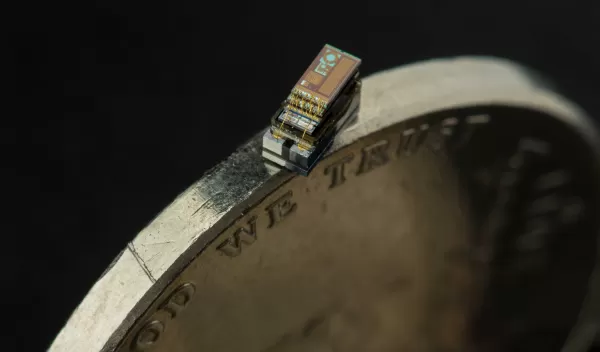
Fundamental science will play a key role in finding cancer cure
The nation is abuzz with President Barack Obama's "National Cancer Moonshot" initiative to eliminate cancer, and many federal agencies support this effort.
The National Science Foundation (NSF) has long supported research that has contributed to the scientific community's understanding of cancer, its biology and treatment. What follows are some examples of novel, fundamental, ongoing science funded across the foundation.
A new probe to identify cancer cells
Understanding cancer cell types represents an important first step in cancer diagnosis and treatment. Previous research established that many types of cancer cells are softer or more malleable than normal, healthy cells. However, until recently, this fact had not played a significant role in deciphering the spread of different cancers.
NSF supports UCLA researcher Amy Rowat's research probing hundreds of different types of cancer cells to understand their pliability using a new technology she developed known as the parallel microfiltration method (PMF).
PMF has already demonstrated that more invasive cancer cells are softer than less invasive ones. Rowat hopes to use the technology to identify molecules that can reverse the softness of cancer cells, making them less invasive.
"Our platform also enables an innovative way to search for compounds that change the stiffness of cells, making cancer cells less harmful, and even targets drug-resistant cells," Rowat says.
Computing a cure for cancer
NSF’s Smart and Connected Health program, jointly supported by the National Institutes of Health, examines cancer diagnostics using computer science and technology. The program capitalizes on advances in the speed and networking capacity of today's computers to transform health and healthcare through fundamental computer science.
"The moonshot of improving U.S. health through fundamental science has always been the goal of Smart and Connected Health at NSF," says program director Wendy Nilsen.
Along these lines, David Blaauw of the University of Michigan College of Engineering was part of a team that NSF recently funded to develop millimeter-sized, ultra-low-power electronic biosensors for implantation in tumors to determine chemotherapy impacts.
Monitoring of tumor micro-environments during therapy could inform chemotherapy duration, result in more successful chemotherapy and advance the science of implantable biosensors.
Detecting cancer recurrence with nanomaterials
NSF-supported research also examines cancer survivors' well-being from an engineering perspective. With support from NSF, chemical engineer Nicholas Kotov of the University of Michigan created a metallic nano-material that generates a special kind of light that can screen cancer cells.
The material -- a thin, stretchable film coated in gold nanoparticles -- can be made in large quantities and is capable of detecting protein and DNA in the blood for early detection of cancer recurrence. Kotov is incorporating the material into a portable smartphone-sized device to monitor cancer cells and quickly identify disease recurrence.
NSF aims to move cancer research forward by focusing on fundamental research in:
- Biology, biochemistry and biophysics;
- Computational advances such as data-driven discovery enabled by machine learning techniques and cyberinfrastructure; and
- And engineered systems in nanotechnology, imaging, material science and robotics.
Continued NSF-supported research advances and innovations in these areas, and others, will help to achieve the administration's cancer "moonshot."


